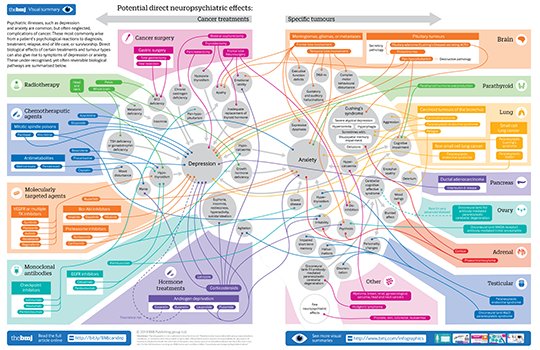Unfair fighting in marriage
Do You and Your Partner Fight Fair?
Some fighting is good for a relationship. As long as you fight fair. Image: Flickr/stuartpilbrow
Some degree of fighting in a relationship is not only inevitable, but also necessary to create growth. The problem for couples is not that they fight—it’s how they fight. Research including this shows that couples who have longer lasting difficulty are the ones who don’t fight fair.
So what is unfair fighting? It’s usually the result of one or both partners using inappropriate negativity during a disagreement. Put a different way, unfair fighting is any move that is made during a conflict that doesn’t serve to help you understand and be understood.
Here are some of the top signs that you’re not fighting fair:
1. Emotional Bullying or Blackmail: This is when one or both partners “punish” the other partner for bringing up a complaint or difficulty. Whether or not it’s intentional, the punishment usually serves to shut the conversation down. Bullying usually takes the form of reacting with extreme anger or offense to a partner’s aired grievance. Emotional blackmail usually entails reacting to difficulties by becoming overwhelmingly distraught and injured in the face of complaints. Both can include some form of the statement, “Well, if I’m so bad then why are you with me?"
2. Hitting Below the Belt: During an argument, any kind of name-calling or derogatory over-generalizations about character should be off limits. This includes doing or saying something with the sole intent of hurting your partner. Of course, we don’t need an advanced degree to know this one is true, yet in the midst of a fight, it is the easiest to fall prey to. Hitting below the belt usually happens in a fight when one or both partners are so frustrated that they feel hopeless about ever being understood. When this starts to happen, it is usually best to stop the exchange until both parties can cool down and think.
3. Not Admitting You’re Wrong: For some reason, so many people have trouble admitting to mishandling things. If you find yourself justifying your lack of apology with statements like, “I didn’t mean to” or “If I admit that I’m wrong, then he/she will blame the whole thing on me” or “What I did is nothing compared to what he/she did” then there is a very good chance there are some bigger vulnerability and trust issues in your relationship that are going to make fighting fair a difficult work in progress.
If you find yourself justifying your lack of apology with statements like, “I didn’t mean to” or “If I admit that I’m wrong, then he/she will blame the whole thing on me” or “What I did is nothing compared to what he/she did” then there is a very good chance there are some bigger vulnerability and trust issues in your relationship that are going to make fighting fair a difficult work in progress.
4. Shutting Down or Withdrawing: This is very different than taking a needed “cool down” or “time out”. Shutting down usually entails zero communication about why the person has withdrawn and when they think they can revisit the issue. Another sign of unfair withdrawal is when the person does decide to re-engage, it is without acknowledging or addressing the earlier conflict or the shut-down.
5. Not Trying to Understand Your Partner’s Perspective: This can often be a difficult one to detect, because it is something to which only you can truly know the answer. Are you really trying to understand your partner’s perspective? Or are you focused on having your partner understanding your perspective first? This can be a slippery slope that often leaves couples stuck at an impasse. Some tell tale signs of this are getting defensive and frequent interrupting. If you catch yourself stuck in your own point of view, be the first one to reach beyond your hurt and anger to try to understand your partner’s perspective. You don’t have to agree with it, you just have to “get” it.
Some tell tale signs of this are getting defensive and frequent interrupting. If you catch yourself stuck in your own point of view, be the first one to reach beyond your hurt and anger to try to understand your partner’s perspective. You don’t have to agree with it, you just have to “get” it.
When our emotions are high and our buttons are pushed, it is extremely easy to fight unfairly. If you find your fights have the nasty habit of taking unproductive turns, it is important to try to be keenly aware of what you do and say during a fight. Remember, even during conflicts, you should be trusted friends.
---
Twitter: @JenKrombergPsyD
Facebook: www.facebook/Dr-Jennifer-Kromberg
Needing to Win — Ten Mean Fighting Strategies
Source: Roman Kosolapov/Shutterstock
All intimate partners have conflict from time to time. When people blend their lives together, they are bound to see some situations differently and need to resolve those differences. Disagreements are stressful for everyone and, depending on how partners treat each other during conflicts, they will either bring a couple closer together or increase the emotional distance between them.
Disputes that lead to greater understanding and new perspectives can actually increase excitement and continuing discovery in a committed relationship. Romantic partners who have learned how to argue productively while maintaining respect for each other can create a new emotional universe that neither could have created alone.
In contrast, many partners fight in ways that consistently hurt their relationship. One or both become need-to-win combatants, establishing a superior position at the expense of their partner’s. As disagreements escalate, they use any behaviors and strategies they can muster to win the argument. The result of these adversarial styles is often mutual isolation, unresolved anger, and painful wounds.
Need-to-win fighting styles are often unconscious behaviors learned in childhood that continue in subsequent relationships. Many are not even aware of when or where they learned to fight this way, or why they continue to do so. They can easily see that they are having difficulty resolving their disputes, but they have not connected their need-to-win fighting style with their lack of successful outcomes.
In the four decades I’ve worked with couples in relationship distress, I have witnessed this destructive fighting style in many forms, but 10 appear most often. When I point these out to couples as I see them emerge in their interactions, they are often surprised to see that the way they fight is the actual reason they fail to resolve their disagreements. When they understand that a different way of handling disputes can turn them from combatants to an effective debate team, they are often enthusiastic to learn how. And as they become a mutually supportive team, they begin to come up with innovative solutions to problems they had never been able to resolve.
The 10 Most Common Need-to-Win Fighting Styles
1. The Silent Treatment
Often accompanied by crossed arms and a supercilious expression, the silent treatment is one fighting style designed to get the other partner to expose his or her thoughts and feelings without doing so yourself. As the silent partner stays disconnected, the other’s distress tends to escalate, giving the winning edge to the one who stays hidden.
As the silent partner stays disconnected, the other’s distress tends to escalate, giving the winning edge to the one who stays hidden.
2. Invalidation
When feeling attacked or unnerved, many people fight back by challenging and devaluating any reasons the other partner has for feeling the way he or she does. These focused fighters often bring in other people’s confirmations of their own point of view to beef up their position, or go after the ways their partner has failed in the past. The goal is to create self-doubt in the other person.
3. Escalation
In most relationships, one partner tends to be more dominant, more able to be direct and stronger in the way he or she feels and thinks. These people are often in relationships with partners who tend to be quieter, more methodical, and more reflective before they voice their opinions. When these couples argue, the need-to-win dominant partner is highly likely to use powerful and intense energy to escalate the argument into greater emotional intensity. The other partner’s ability to fight back is quickly overpowered.
The other partner’s ability to fight back is quickly overpowered.
4. Piling on Other Issues
When need-to-win partners feel that they might be losing an argument, they often respond by diverting their opponents with other issues. They may do so by rehashing the past, talking about other problems, or trying to get the other partner to focus on his or her own flaws. The goal of bringing up additional issues is to confuse the one at hand by overloading the situation with past conflicts that are not pertinent at the time. When this strategy works, the other partner cannot stay on point and is unable to resolve the initial issue.
5. Character Assassination
When they feel cornered and losing, many need-to-win fighters resort to this effective but terribly destructive response. Instead of sticking to the situation at hand, they challenge the other partner as to how he or she is basically flawed in some way, using every example they can to drive home their point. They attempt to convince the other partner that their core personality deficits make them unworthy of challenging the issue at hand, or any other issue. The response of the accused is usually feeling as if he or she is on a symbolic witness stand, defending those painful devaluing judgments.
They attempt to convince the other partner that their core personality deficits make them unworthy of challenging the issue at hand, or any other issue. The response of the accused is usually feeling as if he or she is on a symbolic witness stand, defending those painful devaluing judgments.
6. Arguing From a Distance
The farther away partners are from each other during a conflict, the easier it is for either of them to hurl accusations and insults without feeling responsible for the effect on the other. The distance also allows the need-to-win partner who claims it to more easily assess the weakness of the other, and to take a more protected stance. It also can alleviate guilt, because the intimacy of closeness is diluted and responsibility for causing pain is easier to ignore.
7. Hitting Below the Belt
During any disagreement, partners who care for each other know what they can use in an argument and what they should never say no matter how heated the conflict becomes. They trust each other to never use the special knowledge they have of each other’s deepest vulnerabilities to win an argument. The most serious and relationship-destructive conflicts occur when one or both partners break that trust by using the information they know about the other to gain an unfair advantage in a confrontation.
They trust each other to never use the special knowledge they have of each other’s deepest vulnerabilities to win an argument. The most serious and relationship-destructive conflicts occur when one or both partners break that trust by using the information they know about the other to gain an unfair advantage in a confrontation.
8. Martyrdom
An insidious but often effective strategy to win a fight is to begin beating oneself up on the other end of any accusation or challenge, and then blaming the other partner for the exaggerated self-destruction. These kinds of fighters act as if the other’s accusations were much worse than they were intended in order to make the attacking partner feel guilty and then back down.
9. Intimidation
In any committed relationship, threats of abandonment, exile, and escalated aggressiveness are needing-to-win fighting styles that are intended to make the other partner feel insecure and fearful of loss. The goal is to use that response to have him or her focus on what could be lost if the fight continues.
The goal is to use that response to have him or her focus on what could be lost if the fight continues.
10. Feigned Indifference to Outcome
Whether they feel differently inside or not, partners who pretend they don’t care about whether they win or lose can actually win an argument by acting as if they are giving in without really agreeing. The other partners can feel the ruse and know that they have essentially been robbed of power or influence by the “playing dead” posture of the other.
Moving Forward, Together
None of these fighting styles will ever lead to productive resolution of conflict. Rather than listening, respecting, or being open to each other’s experience, partners will continue to see only their own positions and do whatever they can to wipe out the other’s reasonableness. The arguments that ensue from these battles create deepening grooves of resentment that become harder to overcome over time. Once these styles are identified and stopped, couples can begin to deal with conflict in more productive ways. There are multiple sources available to help intimate partners learn how to fight productively. The following is a simple synthesis of the wealth of knowledge in this area.
There are multiple sources available to help intimate partners learn how to fight productively. The following is a simple synthesis of the wealth of knowledge in this area.
7 Simple Rules to Begin Changing Negative Conflict
1. Avoid arguing at all if you are tired, frustrated, or there isn’t enough time to adequately resolve the situation.
2. Sit close to one another, preferably physically touching in some way.
3. Listen completely to the other’s point of view. Support does not mean you have to see things the same way.
4. Argue only one issue at a time. If others get brought up, agree to talk about them separately and only after you resolve the one at hand.
5. Don’t add support to your position by using your partner's opinions or past arguments to bolster your argument.
6. Stop the conflict if either of you escalates the need to win.
7. If you cannot stop from employing a needing-to-win style when you disagree, seek out the support of a mutually respected professional or trusted witness to observe.
Following these guidelines may initially seem hard, but it gets easier over time. The compounding rewards encourage most couples to continue practicing them. Disagreements that are handled with mutual respect and support both enhance and strengthen the connection between the partners in committed relationships. My clients who have left a negative combat style behind and practiced this new way of conflict resolution not only have fewer conflicts and more successful results, but heal more rapidly when they do disagree.
My free advice e-newsletter, "Heroic Love," shows you how to avoid the common pitfalls that keep people from finding and keeping romantic love. Based on over 100,000 face-to-face hours counseling singles and couples over my 40-year career, you’ll learn how to zero in on the right partner, avoid the dreaded “honeymoon is over” phenomenon, and make sure your relationship never gets boring: www.heroiclove.com
"Unfair" truth | Pravmir
The Nativity of Christ is an event so unusual, exceptional in the history of mankind that it cannot be explained and analyzed from everyday positions. But at the same time, its significance is so great for all mankind and for each person that it manifests itself in a variety of conditions and circumstances.
But at the same time, its significance is so great for all mankind and for each person that it manifests itself in a variety of conditions and circumstances.
The Jewish people at the time of the Lord's coming into the world was in a state of humiliation and bondage. Dissatisfaction with the "occupation" regime was ripening everywhere, calls for an uprising and the overthrow of the hated Roman yoke were heard every now and then. All that was missing was an ideological leader, a leader who would be able to consolidate social forces and direct them to fight against tyranny. All of Judea was waiting for the appearance of such a person, longing for such a development of events. To throw off the oppression of foreign invaders, to gain freedom and independence - is this not the main aspiration of any enslaved people?! nine0003
But the true, spiritual Leader, and not only of the Jews, but of all mankind, was born, as we know, inconspicuously and modestly in a cattle pen, in extreme poverty and humiliation.
And by this very birth, the Lord announced to the world that salvation does not consist in some special political state of society, and not in some special property and social status of its members, but in communion with another life, a light that illuminates a person from within, in silence and inner inconspicuousness. nine0003 To put it bluntly, we are all worried about the coming year, the state of uncertainty and vague forebodings in which society lives. But in our growing indignation at injustice, in our desire for change, let us not forget that it is difficult to imagine a greater injustice than the birth of God in a barn and the presence of the Lord in a trough for livestock. Of course, atheists are free to do as they please, as their rebellious spirit tells them, but anyone who calls himself a Christian should look more closely at the essence of this greatest event - the Nativity of Christ. nine0003 And the main lesson for us - today's Christians - is unchanged: Truth comes into the world hidden, in silence and extreme humiliation, in "the imperishable beauty of a meek and silent spirit. We are now on the verge of, as it seems to us, grandiose changes. Of course, everyone expects the best, building a fair life. But in the urgent demand for justice, in this desire, there is a downside. nine0003 A person who zealously demands justice in relation to himself or to his fellows in a broad, legal sense, - in many other, unknown circumstances and cases, often deserves punishment for the same justice. This is all the more true from the point of view of higher, impartial justice! But this does not happen, and a person who is guilty of many sins, and sometimes even crimes, continues to live not according to the law of justice, but according to the law of indulgence, mercy. And so, when a person urgently and imperiously begins to demand justice, the law of higher justice comes into force.0027 and. We do not justly consider ourselves deserving of some benefits and conveniences. And often our extreme squalor is a gift of undeserved mercy, an opportunity to atone for our own grave sins and change the posthumous fate of our closest ancestors. It hurts to talk about this, but besides the millions of people who were unjustly killed in prisons and bitter labors... besides the host of tortured righteous people in the recent past, there were also millions of those who betrayed, tortured, executed and approved of all this with insane enthusiasm... And so, their descendants demand now for a happy and prosperous life. But is there any justice in this? nine0003 It can be said that the son is not responsible for the father. But this statement is true only in the earthly, legal sense. In the spiritual dimension, "Divine judgment is different, and human judgment is different. They will say: this is cruel and not fair. But it is not for us to judge the justice of the laws that govern the world, and those who, with bestial fury, once rushed to destroy the “old world”, were brought up in such a way that they knew about this law of retribution and deliberately violated it. And those of today who must bear the consequences of this trampling cannot fail to know about the exceptional and transforming power of repentance, which is capable of transferring God's wrath to mercy. nine0003 But instead of bringing sincere repentance, we dare before God to demand some special benefits for ourselves, not freeing ourselves from the burden of our own sins and the consequences of the sins of our loved ones, but only aggravating the guilt and aggravating the future punishment. Conscious humility, perfect humility and meekness in the most depressing circumstances - this is by no means a sign of "downtroddenness", but the blessed lot of the perfect, a means of acquiring treasures and true blessings, so much surpassing our ideas of goodness and contentment, as far as heaven is separated from earth. But if one of the Christians does not find the strength in himself to live according to the spiritual law, but wishes to live according to the carnal, human law, then let him achieve the benefits promised to us by this law, showing the measure of humility and prudence available to him. Not at all considering himself right, but precisely weak in faith. And then, while showing activity and perseverance in establishing worldly justice, this person, at least, does not neglect human law. Moreover, this law, so to speak, is the extreme fence of piety, beyond which it is no longer possible to speak of any Christianity. nine0003 The Lord arranges all our earthly affairs in the best possible way to the extent that we ourselves surrender to Him. And to the extent that we care about the fulfillment of the commandments of God, to the same extent the Lord takes care of the organization of our earthly life. Those who went to Bolotnaya Square and Sakharov Avenue, burning with “noble” anger and indignation, determined to continue to seek justice with noise and perseverance - let them name at least one commandment of Christ, which they fulfilled, doing all of the above. nine0003 And, on the contrary, on behalf of all those who also endure sorrows and slander and injustice, but by faith endure it all with meekness and patience – on their behalf, one can name the many blessed commandments that they fulfilled for the sake of Christ. So is it possible that the Lord will take less care of these “last” ones, about arranging their lives on good principles, than about the “first” ones who despise the fulfillment of His commandments?! If we think so, then we do not know either the truth or the power of God! It is precisely in our Fatherland that we lack faith, trust in God, which we are trying to replace with proud arrogance. Godless forces, fearing the revival of a mighty country, refer to the recent past, draw analogies with it. But such a comparison, no matter how you look at it, is sly, because the current unity is built on other principles and, obviously, strives for faith, and does not trample on it. The crafty demon once, mocking the Kingdom of God, wanted to build a paradise on earth without God, but he was put to shame, and now he himself frightens people with this terrible example so that, turning to God, they would not begin to create life in unity based on the fulfillment of Christ's commandments. nine0003 Just as the leaven of vice did not immediately corrupt the people, but it took a long time of struggle, cruelty and violence to do so, so the leaven of faith, purity and goodness, planted especially diligently in recent years by the Church, will certainly bring its good fruits on the scale of the Fatherland. Just as the Lord was born in obscurity and humility, and gradually illumined the whole world, so our society, which is in the darkness of passions, can be transformed by the grace of Christ, but not immediately, but gradually, through constructive and peaceful labor. nine0003 And the main secret, the hidden, sanctifying secret of communion with Christ, is not to loudly demand goodness and light for oneself “according to the law”, but to give it secretly and quietly to others “by grace”. See also: Schema-archimandrite Eli (Nozdrin) To answer the readers' questions and bewilderment, we went to Fr. Elijah to ask him himself... My turn is coming. Father Eli thinks for a long time before answering my question: What was the reason for this conversion? nine0003 Archpriest Vsevolod Chaplin A 10-day "fun" may give those in power and some part of the people the impression that everything has returned to normal, to the political silence of the last decade. Since you are here... We have a small request. This story was told thanks to the support of readers. Even the smallest monthly donation helps editorial work and create important content for people. Your help is needed now more than ever. My husband and I have been married for three years and are planning to have a baby. The husband has a 13-year-old child from a previous marriage. nine0003 We are going to buy an apartment with a mortgage, which will be considered joint property. If something happens to me, then my husband and future child will share my share. And if something happens to the husband, then the child from the first marriage can claim his share? How to protect yourself from such a section? The husband provided for the first family: he gave away all his property, re-registered an apartment for them, paid off the mortgage, and pays alimony. Anastasia Kornilova lawyer Author profile A child of a husband from his first marriage can indeed claim a share in the inheritance, including in your common apartment. And even if your spouse leaves a will, his child, under certain conditions, will be able to count on a mandatory inheritance share. But you and your husband can conclude a marriage contract and agree that this apartment belongs only to you. I will tell you about the pros and cons of such a solution. At any time during your life in a registered marriage, you can enter into a marriage contract, in which you determine who and what belongs to. Moreover, this can be done not only in relation to the property that you already have, but also in relation to future major purchases. Art. 40, 41, paragraph 1 of Art. 42 SK RF In the marriage contract, you can specify, for example, that all the property that you bought in marriage will be only your property. What to do? 02/05/20 How to conclude a marriage contract so that the spouse does not dispute it? However, there is one caveat: if for some reason your family life does not work out and you decide to get a divorce, your husband will not be able to claim property that is indicated in the marriage contract as your personal property. But if one spouse under the agreement receives many times more than the other, such an agreement can be challenged. The court, having seen the disproportion in the distribution of property under the marriage contract, will award part of the property to your spouse. nine0003 clause 15 of the Decree of the Plenum of the Supreme Court of the Russian Federation of November 5, 1998 No. 15 You can include in the contract a condition according to which the property in marriage will be registered in your name and considered your sole property. In your case, there is another peculiarity: you are going to buy an apartment with a mortgage. This means that you will have to negotiate with the bank. And he, most likely, will agree with the terms of the marriage contract only if the loan and the apartment are initially issued to you. If the main borrower is the husband, and the apartment under the marriage contract belongs only to you, the bank will most likely refuse you. nine0003 You can contact a lawyer to draw up a contract, or entrust it to a notary. The cost of services is from 5,000 to 50,000 R. Then the marriage contract must be certified by a notary. The state duty for certification is 500 R. If you want to make changes to the contract in the future, this will also need to be certified by a notary and, accordingly, the fee must be paid again. /truelove/ Prenuptial agreement A lot of useful information about family law Twice a week in your mail: how to write a prenuptial agreement, divide property and not lose money in a divorce You and your husband can not enter into a marriage contract and simply register an apartment in your name. But then, by default, it will be considered your joint property acquired during the marriage. And the unallocated share of the spouse, if something happens to him, will go to the heirs by law. Art. 34 SK RF art. 256 of the Civil Code of the Russian Federation In this case, it will not matter in the name of which of the spouses the property from the estate was acquired. Exception one: if there was a marriage contract between the spouses, then the property will be divided as indicated in it. paragraph 33 of the Resolution of the Plenum of the Supreme Court of the Russian Federation dated May 29, 2012 No. For example, a married couple from Moscow owned a residential building and a land plot, which the spouses bought in marriage and registered for their husband. But since there was no marriage contract, the house and land were jointly acquired property. The husband bequeathed all his property to his niece. The wife did not apply for the allocation of her marital share and died two months after the death of her husband. As a result, the niece entered into an inheritance under a will for all property. nine0003 In addition to the niece, the couple had a grandson. In the absence of a will, he could have inherited by right of representation: his father, the son of this married couple, died before his parents. The child's mother went to court. She argued that if the mother-in-law had inherited after the death of her husband, then their grandson could claim the inheritance. Grandmother's share - 1 ∕ 2 shares in the ownership of the real estate specified in the will. In addition, after the death of her husband, the mother-in-law could claim the allocation of a mandatory share in the inheritance from the bequeathed property, since she was the disabled spouse of the testator. The child's mother asked to allocate his grandmother's marital share - 1∕2 shares in the disputed property, and also to recognize the grandmother's right to a mandatory share in the inheritance - 1∕8 shares in the property. All this she asked to be included in the inheritance, which opened with the death of her mother-in-law. In addition, she asked to recognize the will in the part of real estate as invalid, and for the grandson of the deceased couple - the ownership of 5/16 shares in the ownership of the disputed property in the order of inheritance. nine0003 The courts of the first two instances denied the woman's claims. The Supreme Court said that if the surviving spouse does not himself declare that his share in the common property is not there, then his share in the jointly acquired property may be included in the estate. Since in this case there was no such statement from the spouse, the Supreme Court overturned the acts of the lower courts and sent the case back for a new trial. Ruling of the Supreme Court of the Russian Federation dated November 14, 2017 in case No. 5-KG17-175PDF, 632 KB In your situation, this means that after the death of a husband, his child from his first marriage can go to court to allocate his marital share from the jointly acquired property and open an inheritance on it. nine0003 You can register an apartment for your husband so that he leaves a will in favor of you and your common child. In this case, the child from the first marriage will not be able to qualify for housing. What to do? 09/29/20 Is it possible to deprive a relative of an inheritance? But there is an exception: if at this moment the child from the first marriage is unable to work, then he will receive a mandatory share in the inheritance. And a will won't help here. The right to a mandatory inheritance share appears for disabled parents, spouses and children, as well as disabled dependents of the testator. Art. 1149 of the Civil Code of the Russian Federation The law includes minors, people of retirement and pre-retirement age, as well as people with disabilities of the first, second or third group. Your husband's child will be an adult in five years, before retirement age - now it's 65 years for men - he is still more than fifty years old. I hope he has no prerequisites for disability. So the option that he will have the right to a mandatory inheritance share is unlikely. So what? 01/18/19 Another guarantee for pre-retirees: a mandatory share in the inheritance If something happens to your husband and you still don’t pay off the mortgage, the heirs will receive not only an apartment, but also debts to the bank. It is not a fact that a child from a first marriage or his mother, as a legal representative, will want to pay off someone else's loan for the sake of being able to acquire a very small share in someone else's apartment. In addition, there is judicial practice when owners who owned small shares were forced to sell them to co-owners with large shares. We told how the court forced the owners to sell their shares in the apartment. As a result, the husband’s child from his first marriage can pay part of the debt under the loan agreement for his share, and then the court will force him to sell it to you for about the same amount. That is, he will get a lot of problems and will not win anything in terms of property. nine0003 What to do? 11/17/20 Is it necessary to allocate a share in the apartment of the husband's daughter from the first marriage if the mother's capital was used? And one more thing: when you pay off your mortgage, you will be able to dispose of the apartment without looking at the bank. Let's say now you can register an apartment for your husband, and he will write a will in your favor. And when you pay everything to the bank, sign a prenuptial agreement that will completely remove the apartment from your spouse's inheritance property. " And of all the possible options for coming into the world, the all-powerful Truth Itself chose this path - the path of meekness and humility.
" And of all the possible options for coming into the world, the all-powerful Truth Itself chose this path - the path of meekness and humility.  .. a person loses much of what he had, because he had it not by justice, but by grace, which he completely ceased to realize and appreciate.
.. a person loses much of what he had, because he had it not by justice, but by grace, which he completely ceased to realize and appreciate.  " And God "punishes the children for the guilt of the fathers who hate Him, to the third and fourth generation" (Ex. 20:5).
" And God "punishes the children for the guilt of the fathers who hate Him, to the third and fourth generation" (Ex. 20:5). 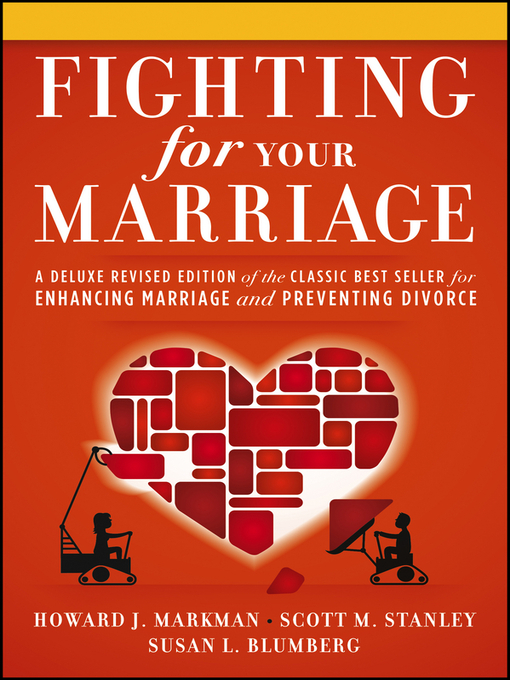 And we, who call ourselves Christians, must firmly remember this! Blessed and blessed, that is, supremely happy, is he who, by the grace of God, patiently and with humility endures the misfortunes that befall him. nine0003
And we, who call ourselves Christians, must firmly remember this! Blessed and blessed, that is, supremely happy, is he who, by the grace of God, patiently and with humility endures the misfortunes that befall him. nine0003  This is a spiritual law and an effective law, it is enough just to begin to fulfill it.
This is a spiritual law and an effective law, it is enough just to begin to fulfill it.  And instead of strictly verifying all our actions, words and thoughts with the Gospel, we rely, as we think, on ourselves, but in reality - on the evil spirit, inconspicuously, but clearly acting among the people. And the goal of this spirit is by no means creation, but the destruction of good foundations and the decay of good morals, under the guise of love of truth and zeal for justice.
And instead of strictly verifying all our actions, words and thoughts with the Gospel, we rely, as we think, on ourselves, but in reality - on the evil spirit, inconspicuously, but clearly acting among the people. And the goal of this spirit is by no means creation, but the destruction of good foundations and the decay of good morals, under the guise of love of truth and zeal for justice. 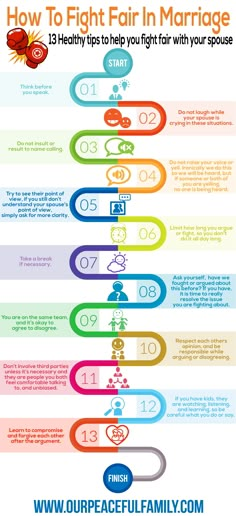 It just takes time for that.
It just takes time for that.
Schema-Archimandrite Eli about the rallies: afterword (+ Video)
Archpriest Vsevolod Chaplin: Non-idle thoughts
 No, it didn't. And will never return.
No, it didn't. And will never return. How to arrange an apartment so that the husband's child from his first marriage could not apply for it?

If you conclude a marriage contract
 Then not a single expensive purchase made in your name, be it an apartment, a car, appliances, watches, jewelry, will fall into the estate if something happens to your husband. nine0003
Then not a single expensive purchase made in your name, be it an apartment, a car, appliances, watches, jewelry, will fall into the estate if something happens to your husband. nine0003  But stipulate that if you decide to divorce, then the property will be divided between you and your husband. In this way, it will be possible to avoid a situation where the case will have to be decided in court.
But stipulate that if you decide to divorce, then the property will be divided between you and your husband. In this way, it will be possible to avoid a situation where the case will have to be decided in court. 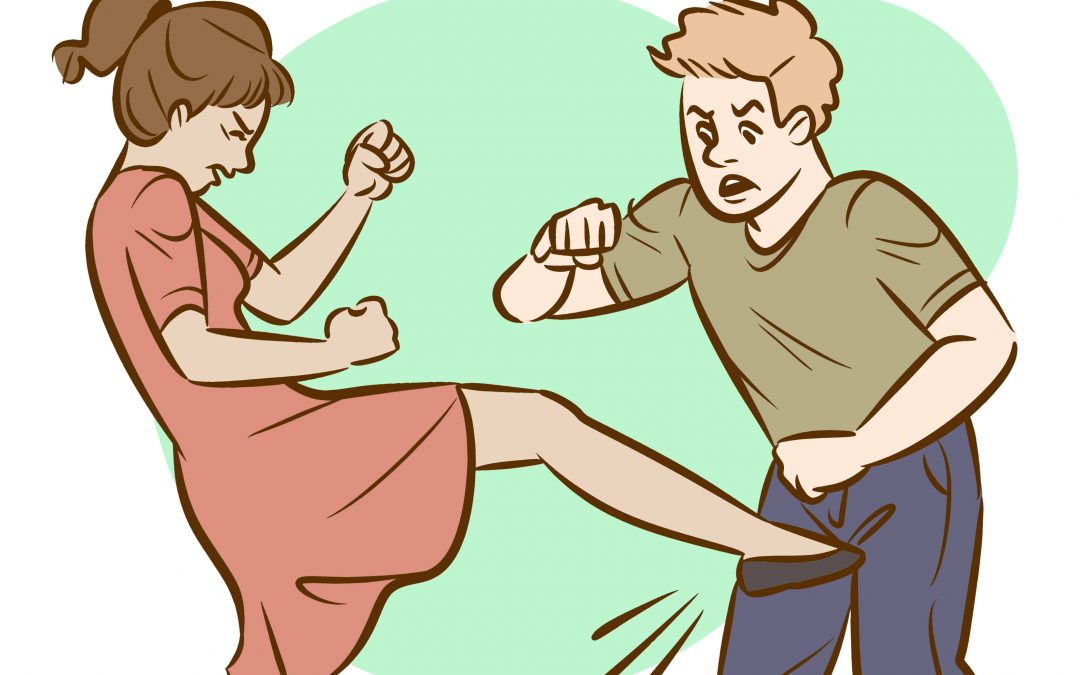
If you register an apartment in your name
 9
9  nine0003
nine0003 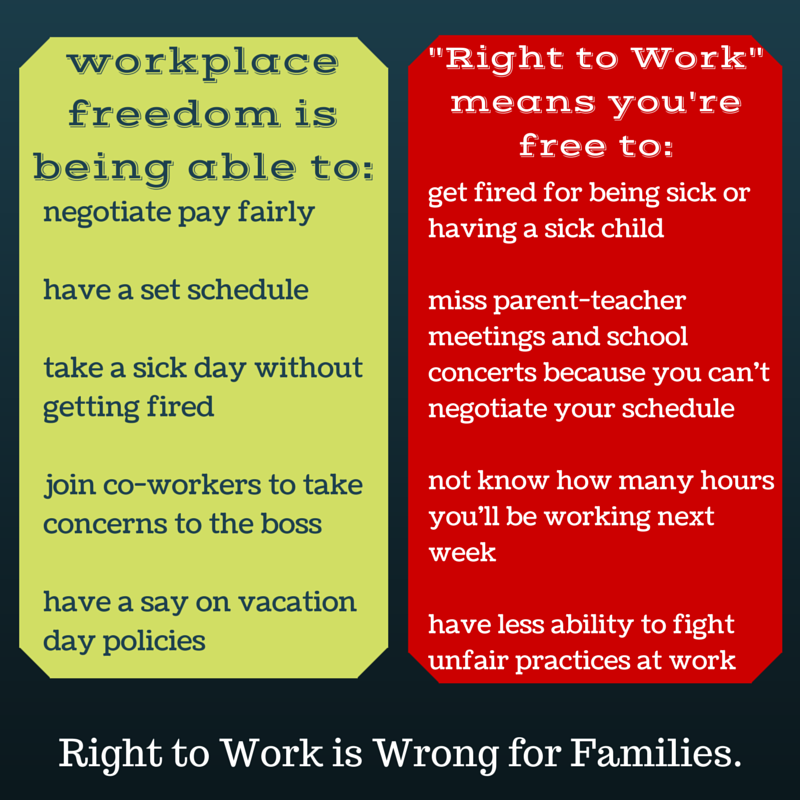
If you register an apartment for your spouse
 nine0003
nine0003 What else you need to consider








